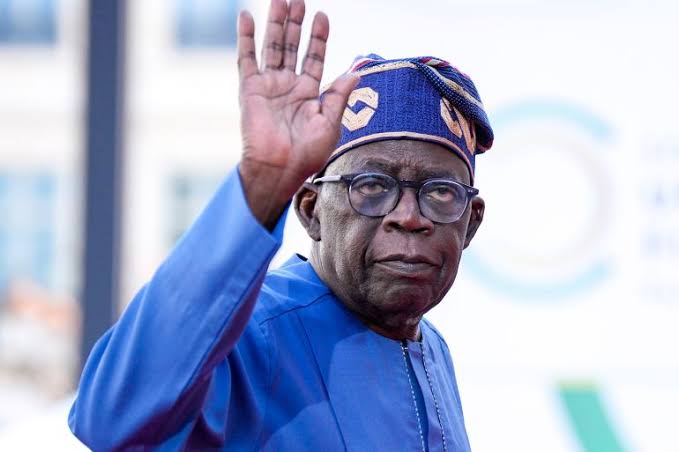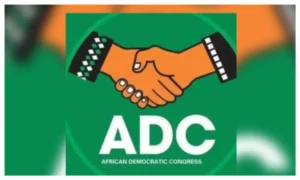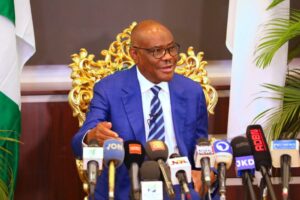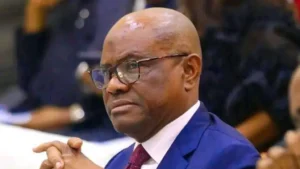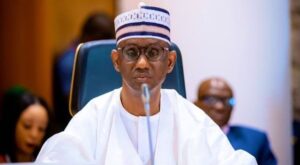President Bola Ahmed Tinubu has left the United Kingdom for Paris, France, amidst growing frustration in Nigeria over rising fuel prices and worsening economic conditions. The president’s departure, confirmed by Ibrahim Kabir Masari, his Senior Special Assistant on Political and other matters, follows more than a week spent in the UK on a working vacation.
Masari shared the news on Friday via his X account, stating that he had visited Tinubu at his private residence in the UK, where they held productive discussions. “We then departed for Paris, France, for another important engagement,” Masari said, though details of this engagement have not yet been disclosed.
President Tinubu left Nigeria on October 2 for a two-week vacation in the UK, as part of his annual leave. His absence has raised concerns, given the serious economic challenges Nigerians are facing. Many citizens have questioned the timing of his vacation, which coincides with a period of increasing economic instability and public unrest.
At the heart of these concerns is the recent spike in fuel prices. The Nigerian National Petroleum Company Limited (NNPCL) recently raised the price of Premium Motor Spirit (petrol) to N1,030 per litre. This price hike marks a significant jump from previous rates, deepening the economic strain on Nigerians, particularly the most vulnerable.
The cost of fuel has a direct impact on the cost of goods and services across the country, as transportation and production costs rise accordingly. For many Nigerians, daily life has become a struggle, with the prices of food, transport, and basic services increasing sharply. The fuel price hike has only compounded these challenges, leading to widespread frustration and protests across the country.
The rise in fuel prices has severely impacted the livelihoods of many Nigerians, especially those in low-income households who are already struggling to meet their basic needs. The cost of transportation has skyrocketed, making it difficult for people to afford commuting to work or travel for essential purposes. Small businesses, which rely heavily on fuel for operations, have also been hit hard, as they now face higher operating costs.
The fuel price hike has also triggered inflation, as the prices of goods and services continue to climb. This inflationary pressure is further straining household budgets, leaving many Nigerians feeling helpless in the face of rising costs. While the government has introduced a few palliative measures to cushion the impact of these economic challenges, they have been insufficient to ease the growing burden on citizens.
President Tinubu’s vacation and subsequent trip to France have drawn mixed reactions from the public and political commentators. Many Nigerians have expressed disappointment, arguing that the president should prioritize addressing the economic challenges facing the country instead of leaving for foreign engagements. Critics believe his absence during such a critical time reflects a lack of urgency in dealing with the nation’s pressing issues.
However, Tinubu’s supporters argue that his trips abroad are necessary to secure international partnerships and strengthen diplomatic ties, which could eventually benefit Nigeria’s economy. They claim that the president’s engagement in foreign matters is part of a broader strategy to attract foreign investments and foster international cooperation that could help tackle Nigeria’s economic woes in the long term.
While President Tinubu continues his international engagements, Nigerians are left to deal with the immediate reality of rising fuel prices and economic hardship. The president’s return and how he plans to address these pressing issues will be closely watched by the public.
The government will need to act quickly to implement sustainable economic policies that address the root causes of the current crisis. Measures to stabilize fuel prices, boost local production, and alleviate inflationary pressures will be crucial in the coming months. Nigerians are hopeful that once Tinubu concludes his international engagements, he will focus on resolving the economic challenges that have gripped the nation.
As citizens face increasing financial pressures, many are calling for more transparency and clarity from the government on its economic plans. Until then, the fuel price crisis and economic hardships remain at the forefront of concerns for millions of Nigerians.
